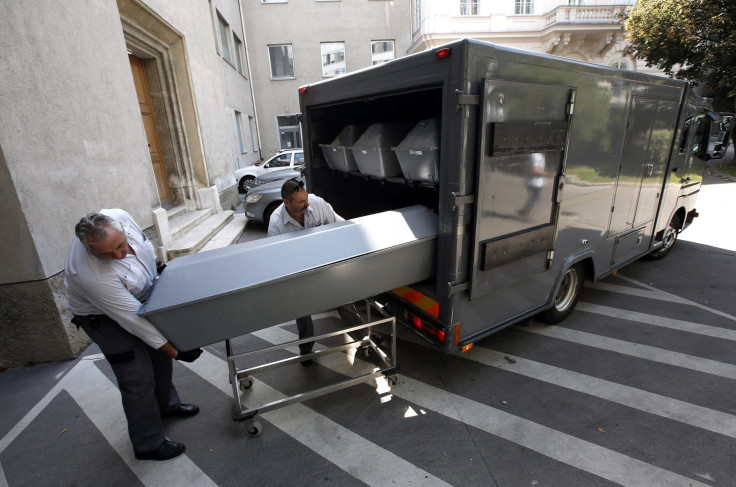Europe Migrant Crisis: Deaths In Austria Spur Public Revulsion, Law Enforcement Action

The horrific discovery of the bodies of 71 migrants, who likely suffocated after being sealed in the back of a truck which was discovered on an Austrian roadside this week, has unleashed a wave of revulsion and promises of police action to target the people-smuggling gangs ruthlessly profiting from Europe's migrant crisis.
While four people have appeared in a Hungarian court in connection with the deaths, they are likely just low-level operatives in a vast international criminal enterprise, that is now the focus of widespread anger in Europe.
"This tragedy underscores the ruthlessness of people smugglers who have expanded their business from the Mediterranean Sea to the highways of Europe," Melissa Fleming, a spokeswoman for the office of the United Nations High Commissioner for Refugees, told CNN. "It shows they have no regard for human life and are only after profit," she added.
European police officials said that they hoped the suspects in custody would lead them to more senior members of the organization they worked for. Rob Wainwright, director of European police agency Europol, told the Washington Post that his organization and individual national law enforcement agencies were “working urgently” to catch the ringleaders of the people-smuggling ring responsible for the deaths in Austria.
“It was a direct hit in our systems,” said Wainwright of the investigation into the migrant deaths in Austria. “We were able to make intelligence connections with many other cases that we’re currently working on across Europe.”
Investigations will likely focus on the Balkans region, which has now reportedly become the primary route for people-smuggling gangs transporting migrants and refugees from the Middle East, Africa and central Asia into western Europe.
Between January and July this year, 102,342 people crossed into Austria via the western Balkans, more than 10,000 higher than the total who entered Europe via the so-called “central Mediterranean” route, according to data from Frontex, the EU border control agency, cited by the Guardian.
Police believe that criminal gangs in the region, who had previously been involved in drug trafficking, the sex trade and money laundering, were now focussing on the more lucrative business of people smuggling. On Friday, Europol said it had identified 3,000 serious players linked to people-smuggling in Europe, the paper said.
In June, EU leaders gave the go-ahead for a military operation against people-smugglers, which authorities said could lead to European forces boarding and in some cases deliberately sinking vessels, if a mandate from the UN is secured, according to the Financial Times.
© Copyright IBTimes 2024. All rights reserved.






















